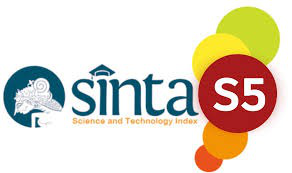Analysis of Students' Communication Politeness Capabilities Towards Lecturers in an Academic Environment: Case Study at FKIP Universitas Perjuangan Tasikmalaya
Abstract
This research investigates students' polite communication skills towards lecturers in an academic environment. Data was collected through observations and interviews with students from the Indonesian Language and Literature Education Study Program at FKIP Universitas Perjuangan Tasikmalaya. The main finding is that most students tend to use less polite language in communication with lecturers, including the use of slang, non-compliance with communication ethics, and lack of use of polite words such as "thank you." Factors such as the living environment and relationships outside campus influence student communication patterns. The modern era of technology and easy access to digital content has also influenced their communication practices. This influence has the potential to damage the campus' reputation and create disharmony in the academic environment. Awareness of the importance of language politeness and the active role of educational institutions and lecturers in providing guidance on communication ethics can help create a more conducive academic environment.
Keywords
Full Text:
PDFReferences
Anugrawati, N., Strid, J. E., Haryanto, M. M., & Salija, K. (2020). Politeness Strategies of Indonesian Students in Mediated Communication. International Journal of Advanced Science and Technology, 29(6), 3771-3785.
Anwar, M., Murtadho, F., Boeriswati, E., Yarmi, G., & Rosa, H. T. (2021). The analysis model of impolite Indonesian language use. Linguistics and Culture Review, 5(S3), 1426-1441.
Gusnawaty, G., & Nurwati, A. (2019). A learning model of Indonesian as a forPrayitno, H. J., Ngalim, A., Sutopo, A., Rohmadi, M., & Yuniawan, T. (2018). Power, orientation, and strategy of positive politeness used by children at the age of elementary school with Javanese cultural background. Humanus: Jurnal Ilmiah Ilmu-Ilmu Humaniora, 17(2), 164-173.
Haerul, H., Sastramiharjo, A., Damaianti, V. S., & Mulyati, Y. (2021). The Communication Culture of the Cyberspace in the Perspective of Language Politeness. Ethical Lingua: Journal of Language Teaching and Literature, 8(1), 62-73.
Kardana, I. N., Satyawati, M. S., & Rajistha, I. A. (2018). Strategies to Create Polite Expressions in Indonesian Communication. Int. J. Linguist, 10(6), 1.
Kartika, T. (2016). Verbal communication culture and local wisdom: The value civilization of Indonesia nation. Lingua Cultura, 10(2), 89-93.
Mariani, N. (2016). Developing Students' Intelligent Character through Linguistic Politeness: The Case of English as a Foreign Language for Indonesian Students. English Language Teaching, 9(1), 101-106.
Saputra, N., Lubis, T., & Setiawan, F. (2021). Politeness strategies for the speech acts of Indonesian language education students in pidie regency. Tradition and Modernity of Humanity, 1(1), 33-40.
Spencer, T. D., & Petersen, D. B. (2018). Bridging oral and written language: An oral narrative language intervention study with writing outcomes. Language, Speech, and Hearing Services in Schools, 49(3), 569-581.
Zhang, B. (2013). An analysis of spoken language and written language and how they affect English language learning and teaching. Journal of Language Teaching and Research, 4(4), 834.
DOI: https://doi.org/10.46336/ijeer.v4i1.572
Refbacks
- There are currently no refbacks.
Copyright (c) 2024 Jumadil Saputra, Setyo Yohandoko, Volodymyr Rusyn
Published By:
IJEER: Jalan Riung Ampuh No. 3, Riung Bandung, Kota Bandung 40295, Jawa Barat, Indonesia
IJEER Indexed By:
 This work is licensed under a Creative Commons Attribution 4.0 International License.
This work is licensed under a Creative Commons Attribution 4.0 International License.









